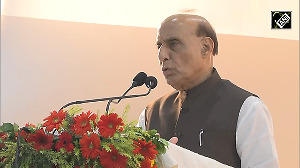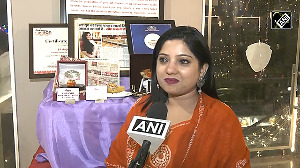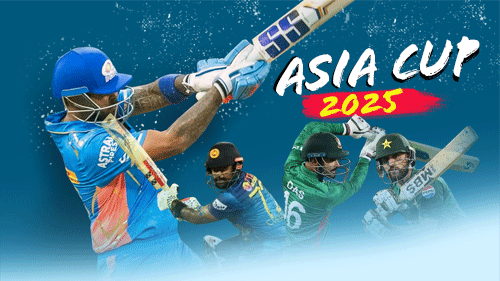In what was a disappointing year for Indian shooters, Abhinav Bindra and Rajyavardhan Singh Rathore did well to grab Olympic quota places and join Anjali Vedpathak-Bhagwat at the 2004 Athens Olympics.
 Barring Anjali, who won the World Cup final in Milan, none of the other Indian shooters could really live up to their reputation.
Barring Anjali, who won the World Cup final in Milan, none of the other Indian shooters could really live up to their reputation.
Anjali, the world No. 2, warmed up for the high-voltage competition at the Olympics by winning the Milan title in the women's 10 metres air rifle but there was a tinge of disappointment as she failed to defend her 'Champion of champions' title in the combined competition for men and women medallists.
Double Trap shooter Rathore will rate 2003 as his best year after he booked an Olympic berth and also came up with some superb performances on the World Cup circuit.
Rathore, a Major with Indian Army, missed the Olympic quota by a whisker, though he won the bronze at the New Delhi World Cup in April but came up with
determined performances to move up to a career high number four in the world.
![]()
Also Read
![]()
![]()
![]()
![]()
Anjali, Rathore strike gold![]()
![]()
![]()
The 33-year-old finally booked his Olympics ticket in September, finishing third in the World Championships in Nicosia, Cyprus, after failing narrowly at the World Cups in Granada and Lonato, Italy, where he finished fourth and eighth respectively.
Anjali was in superb form in Milan and with her new weapon she recorded scores of 100, 100, 100 and 99 in the preliminary round for a score of 399 out of 400.
And then in the final, Central Industrial Security Force Inspector shot 10.1, 10.6, 10.4, 10.6, 10.3, 10.2, 10.5, 10.3, 10.0 and 10.4 for a tally of 103.4.
That was enough to push World No. 1 Li Du of China (501.4 to second place and world No. 3 Hiromi Masaki of Japan (500) to third.
 The 34-year-old Indian had begun the season on a high, winning the gold in the World Cup in Fort Benning, USA, and then went on to experiment with various techniques in subsequent World Cups before finishing with a bang in Italy.
The 34-year-old Indian had begun the season on a high, winning the gold in the World Cup in Fort Benning, USA, and then went on to experiment with various techniques in subsequent World Cups before finishing with a bang in Italy.
In between, at the other World Cups, Anjali ended 15th in Zagreb, 24th in Munich and 10th in Changwon.
Going into the Afro-Asian Games at Hyderabad, Anjali found it difficult to retain her focus but still ended up with a gold and silver medal in her kitty.
The youngest of the famous trio, Abhinav Bindra did not have any exceptional performance to point at in the last 12 months. But after finishing a modest 20th in Fort Benning, the Chandigarh lad gradually went up the ladder.
The 21-year-old finished 11th in Zagreb, fourth in Changwon and claimed a bronze medal - his season's best - in the World Cup final at Milan.
The other notable performance of the year came from trap shooter Manavjit Singh Sandhu, who won the bronze medal in the Delhi World Cup.
But Sandhu failed to maintain the high performance graph as he finished 10th in Nicosia and 13th in Lonato.
Among the juniors, Birendeep Sodhi showed enough signs of maturing fast as he won the trap gold in the Asian Clay Shooting Championships in New Delhi. But the youngster disappointed in the World Championship in Nicosia, ending up 24th.
Looking back at the Delhi World Cup and the Asian Shooting Championships, it was an excellent performance by the Indian shooters who excelled at home against world-class shooters.
Other than Rathore and Sandhu, who won World Cup bronze medals, there were some remarkable performances on the women's side, with skeet shooter Arti Singh and junior woman double trap shooter Shagun Chaudhary grabbing medals.
Rathore carried on his fine World Cup form into the Asian meet and upset Asian Games gold medallist Chen Shih Wei of Chinese-Taipei to grab the gold.
Later in the trap event, it was Anwer Sultan's turn to hog the lime light. The defending champion humbled Kuwaiti world champion Khaled Al Mudhaf.
After a three-way tie at 142 with Manavjit and Khaled after the final, the 40-year-old prevailed 5-4 in the tie-shoot.






